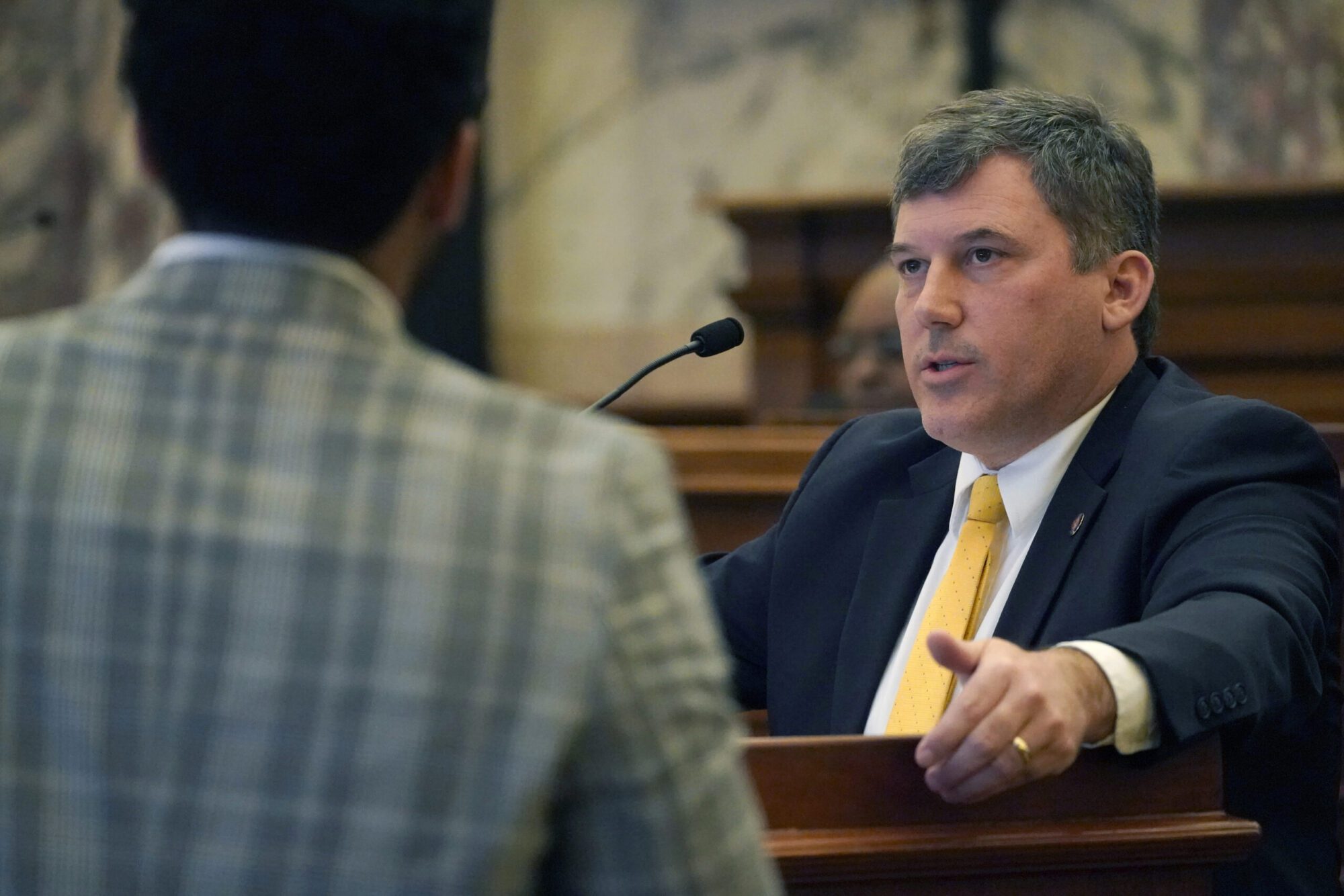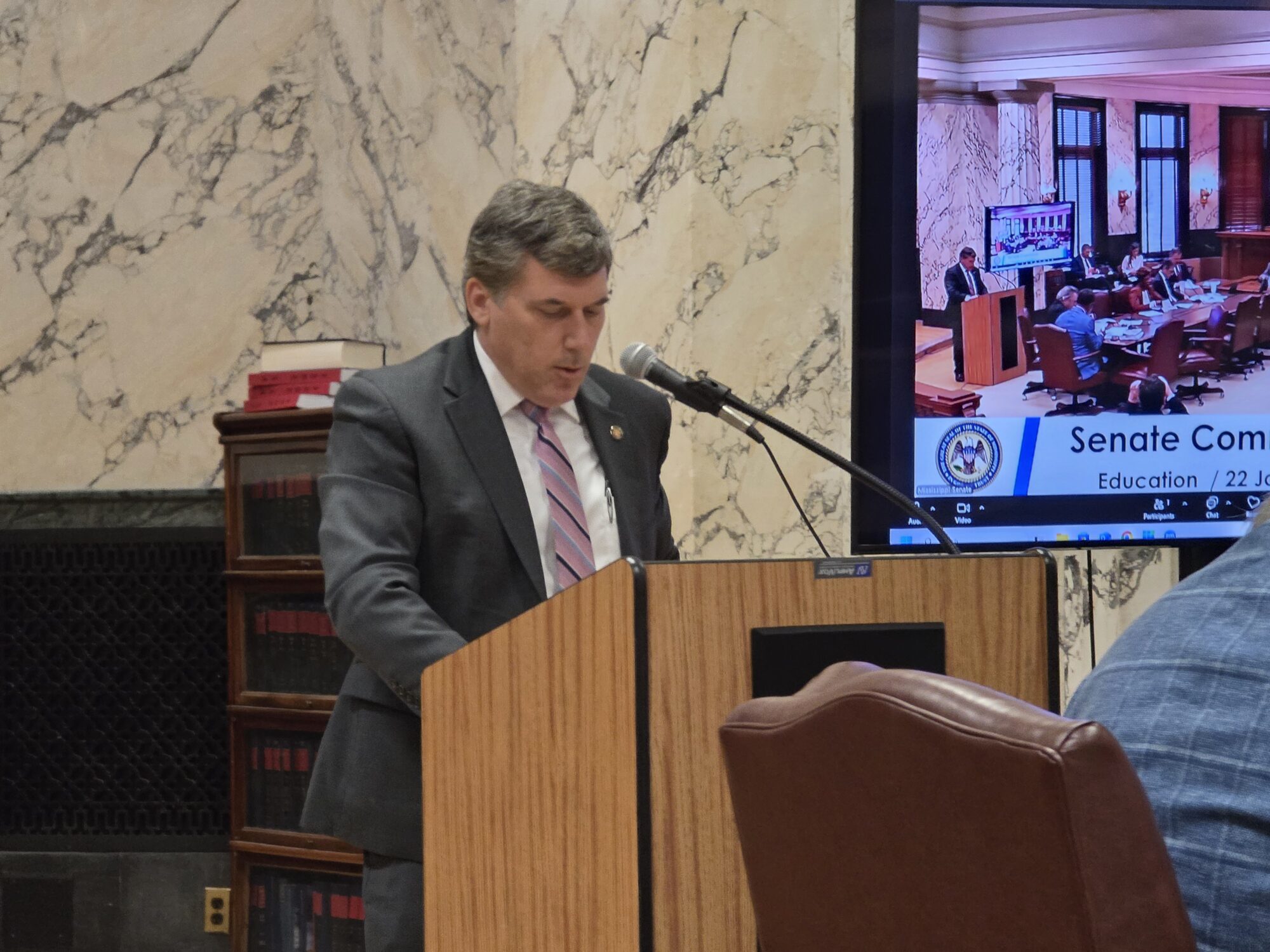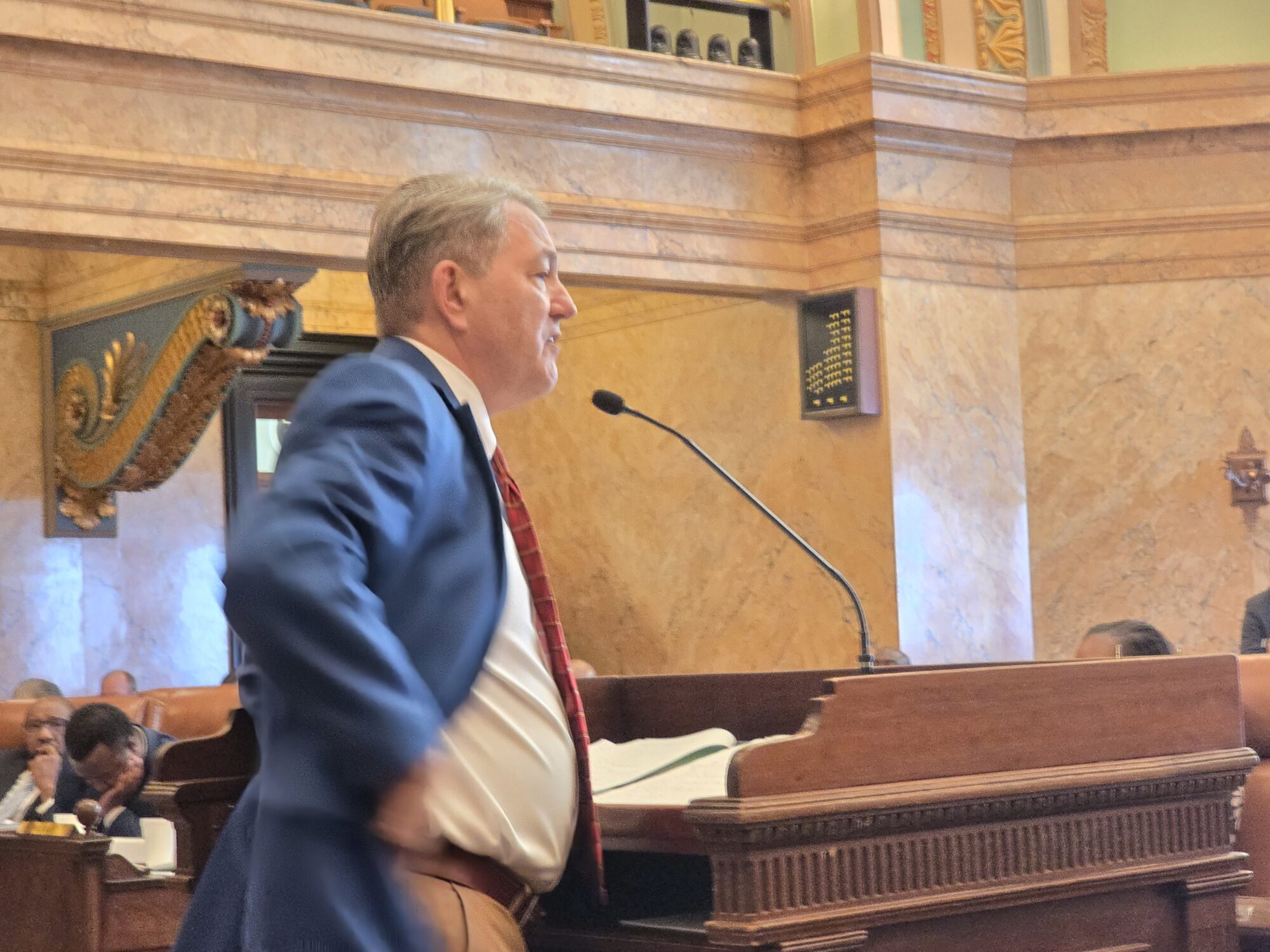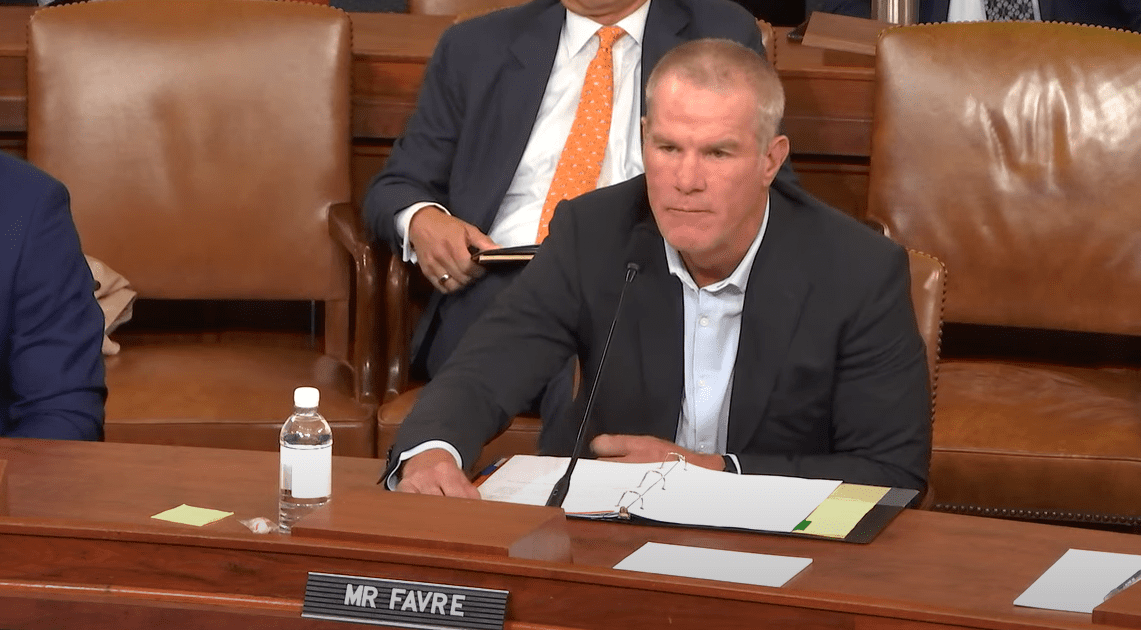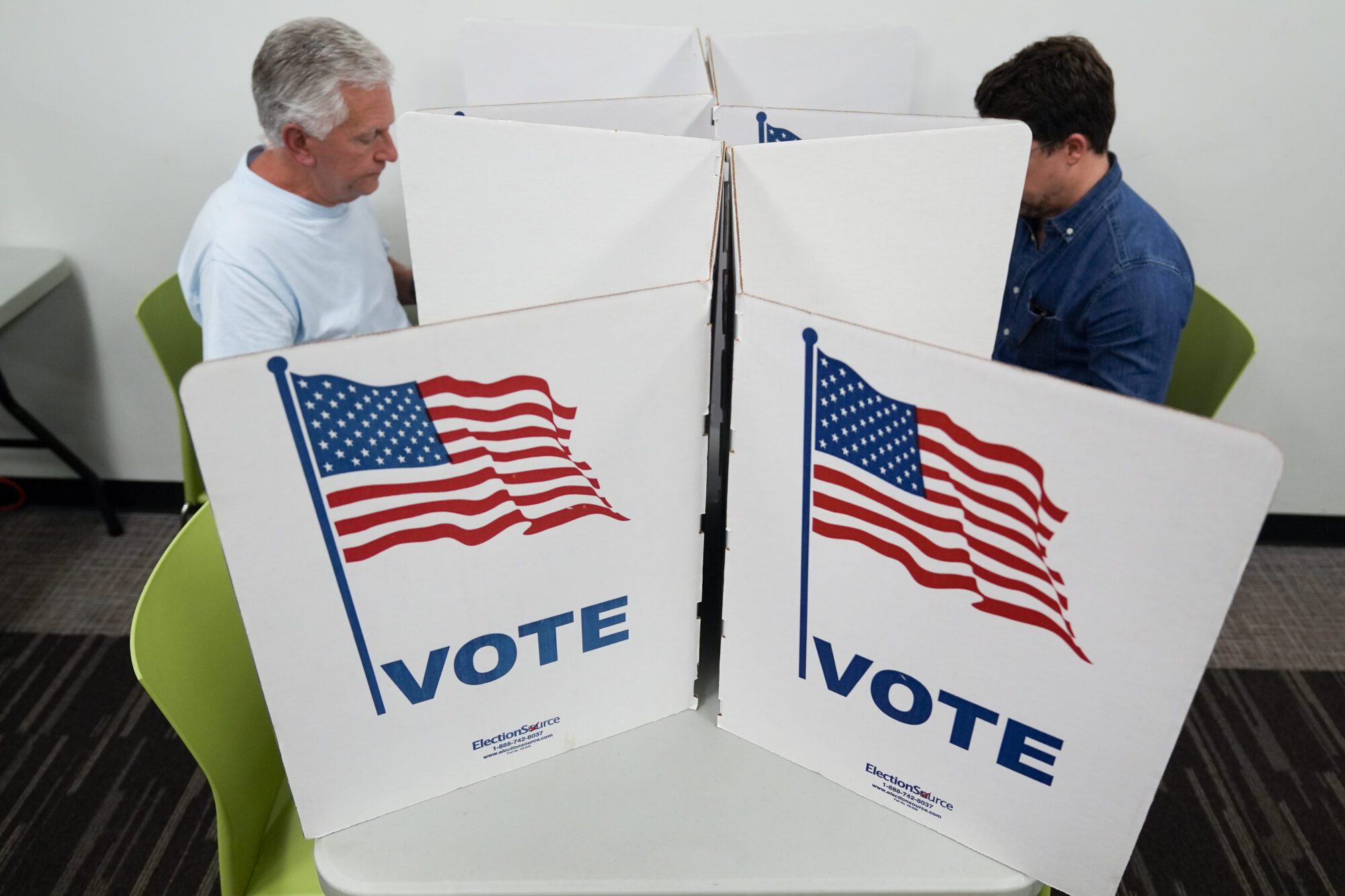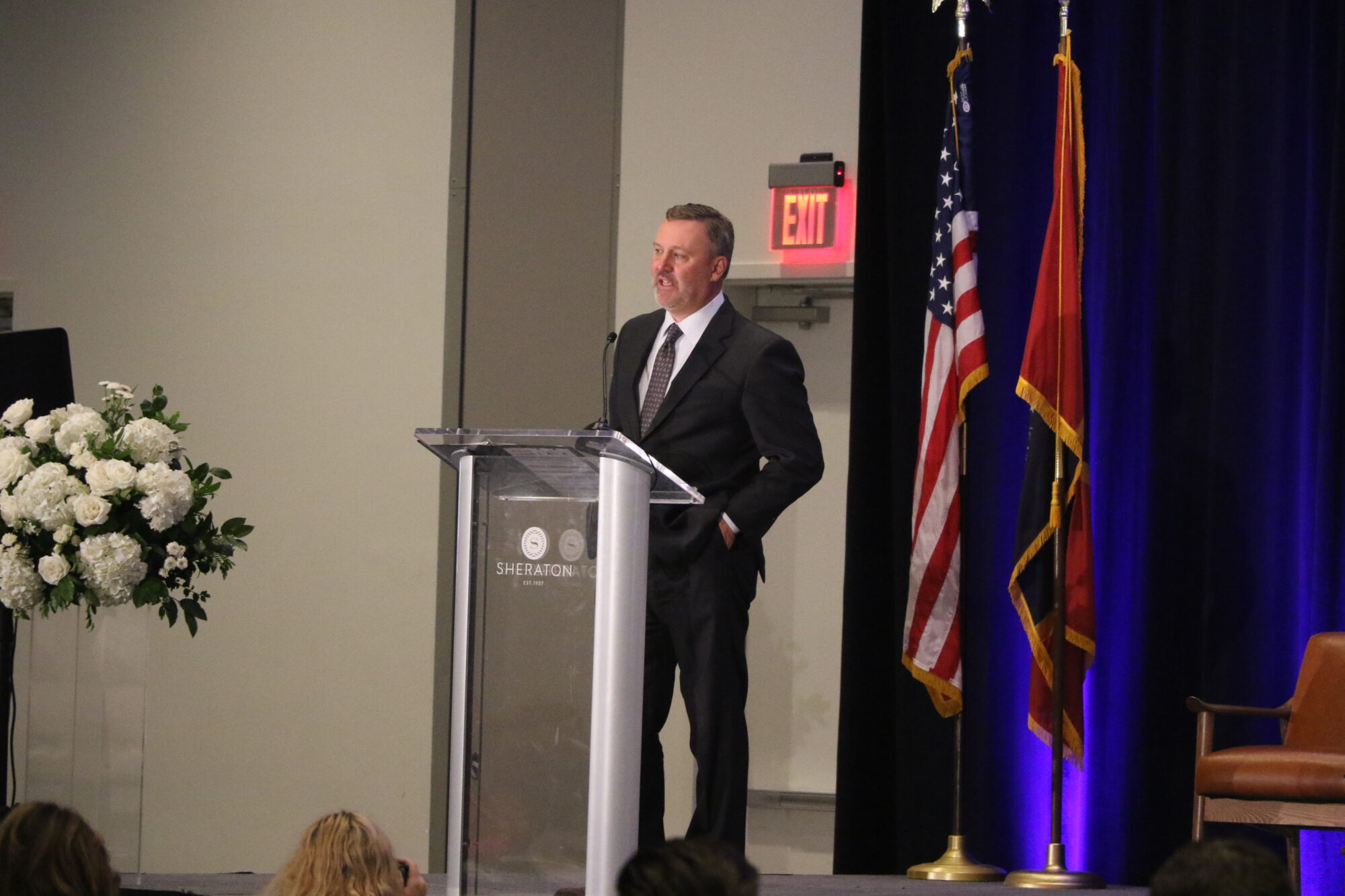
- Talk of cutting the sales tax on groceries and how to fund infrastructure also on the table.
On Tuesday, Speaker Jason White (R) held a policy summit where lawmakers and state leaders discussed efforts to lower the income tax burden in Mississippi, potentially eliminating it altogether. Consideration of cutting the sales tax on groceries was also on the table.
The state has experienced significant revenue surpluses of over $1 billion in recent years, even as multiple tax cuts enacted in the last eight years took effect. The largest tax cut in state history came in 2022 when lawmakers agreed to phase down the income tax a flat 4 percent.
Speaker White began the summit by outlining his plans, which are to continue to cut the state’s income tax, with an anticipated goal of bringing it to zero. He also promised to work to cut the sales tax on groceries by half, from 7 percent to 3.5 percent.
Mississippi applies its general sales tax of 7 percent to the purchase of groceries, making it the highest state sales tax on groceries in the nation. With the state collecting more than is budgeted, White’s intention is to bring the two in line.
“So long as we are taking in more than a billion more than we spend I will continue to hear about cutting taxes,” White said.
Where the Tax Reform Committee Stands
As part of Speaker White’s promise to enact those cuts, he formed a Tax Reform Select Committee during the off session this summer. Tuesday, co-chairs of that committee provided an update on the two meetings held so far.
State Representative Trey Lamar (R), co-chair of the Tax Reform Select Committee and chair of the House Ways and Means Committee, listed the three goals the committee:
- to support economic growth
- meet the needs of cities and counties, and
- fix the way the Mississippi Department of Transportation is funded.
Lamar said MDOT has been subsidized by about $1 billion annually for the past three years, a trend that needs to be curbed.
In 2020, the Legislature appropriated a budget of $1.1 billion to MDOT. For FY 2025, MDOT’s budget came in at $1.44 billion. Additionally, the Department received an $817 million supplemental appropriation, which included the reappropriation of roughly $370 million in unspent funds from last year, as well as $250 million to support large scale capacity projects.
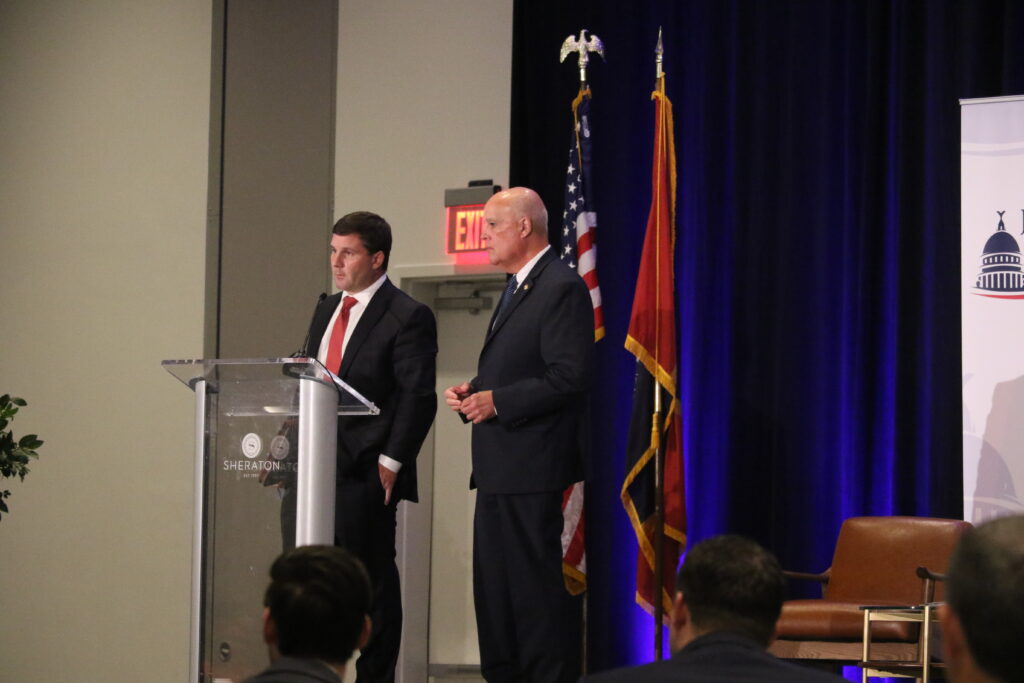
Nine states in the nation currently do not collect income tax, which Rep. Lamar said shows there is a clear path for Mississippi to follow suit. He described income tax as a tax on work.
“A tax on work is a tax on productivity,” Lamar said.
Rep. Lamar said the state has gone from bringing in $5.7 billion in revenue in 2017 to collecting $7.7 billion the last several years.
Spending has also increased in recent years. From FY 2020 to FY 2025, which began on July 1st, the state general fund budget increased from $5.7 billion to over $7 billion (23%). In that same period total state support increased from $6.35 billion to $7.86 billion (24%).
Spending growth is not a recent development according to Lamar. From 1999 to 2019, Lamar said the state has seen an average annual growth of 3 percent, in spite of the effects of Hurricane Katrina in 2005 and a national recession in 2008.
Even though general fund spending has increased by $1.3 billion over the last five years, Lamar told attendees he does not believe that same pace of growth should continue. Lamar pointed to where additional spending has occurred, including K-12 education, the Mississippi Department of Corrections, and the Institution of Higher Learning.
“We have done some good things in Mississippi with where we are spending our dollars,” Lamar added.
Revenue collections have remained consistently above estimates. Only two months in to this current fiscal year, Lamar said projections show the state will exceed revenue estimates again.
When asked about how cutting the income tax might affect other taxes, such as property tax, Lamar responded that the state of Mississippi does not have a state property tax. He said property taxes are set and collected at the municipal and county level.
Co-chair of the House Select Committee State Rep. Scott Bounds (R) said that currently the committee is in a fact finding mode, so there is no bill that provides a clear path forward at this time. He expects more developments as the committee holds its meeting on October 6th.
Sales Tax on Groceries
When the topic of cutting the sales tax on groceries was discussed, Hattiesburg Mayor Toby Barker (I) said the best option is for the Department of Revenue to come up with a way to ensure that municipalities still get the same amount in tax diversions.
When legislators were asked about the proposition to cut the sales tax on groceries, some, like Rep. Lamar voiced support, while others such as State Senator Josh Harkins (R) and Rep. Bounds expressed concern about making the cut without a clear path to keep cities whole.
Even though Lamar supports making the cut, he, too, is concerned about how municipalities would sustain with the lost revenue. State Senator Jeremy England (R) said he doesn’t want to see other taxes increased to address the shortfall a grocery tax would create.
Municipalities receive 18.5 percent of all sales tax collected within their boundaries, which provides a large portion of their annual budgets.
Mississippi currently does not charge sales tax on groceries purchased using food stamps.
Infrastructure Funding
Brad White, MDOT Executive Director, and Central District Commissioner Willie Simmons (D), Chair of the Mississippi Transportation Commission, addressed the need to revamp the way the agency is funded to ensure that not only road and bridge maintenance continue in the state, but new capacity projects are not shelved due to a lack of funding.
The pair said that in the past the department has dealt with a shortage of funding that shelved potential capacity projects for years.
One of the ways the department is funded is through the state fuel tax, currently set to 18 cents per gallon in Mississippi. The federal fuel tax adds an additional 18.4 cents to every gallon of gasoline purchased. The state rate was set in the late 1980s and has not been adjusted since. Simmons said adjusting the rate by an additional cent would produce $21 million in additional revenue.
Currently, the federal government covers about 52 percent of the state’s maintenance and capacity projects, with the state handling the remainder.
Simmons and White were reluctant to suggest raising the fuel tax as an end-all solution.
Governor Tate Reeves dispels myths
Governor Tate Reeves (R) used his time at the podium to dispel myths that opponents to income tax cuts may propose. Those myths were that tax cuts would not lead to more jobs, cuts would not help the education system, and cuts make it impossible for a state to balance its budget.
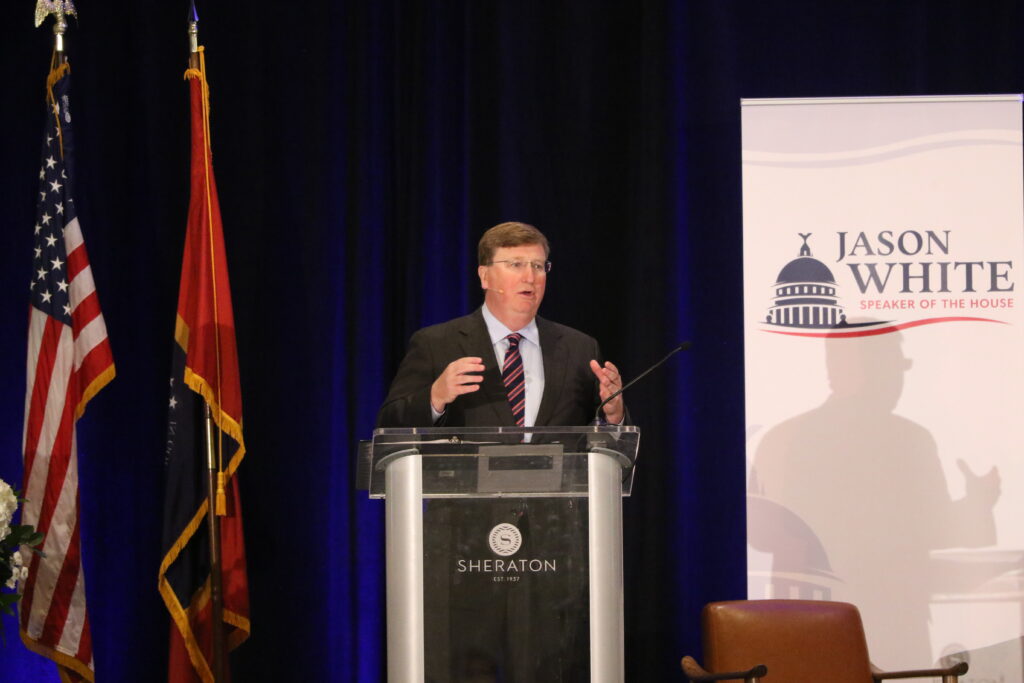
Considering the state has seen the biggest economic development investments since the recent income tax cuts went into effect over the last eight years, Governor Reeves said the first myth has been proven false. He used the $10 billion investment by Amazon announced earlier this year to build new data centers as one of several examples. The Amazon investment is expected to create about 1,000 new high paying jobs.
“My friend, the list goes on and on and on,” Reeves said. “The fact is we live in an extraordinary time in Mississippi, our economy is thriving.”
Governor Reeves also pointed to the state’s now record unemployment rate of 2.7 percent as of July, which is a 54 percent decline since 2019.
To address the myth about being unable to invest in education, in that same period since the state began making tax cuts, Mississippi’s schools have been recognized for significant improvements in reading and math.
“Even the New York Times calls it the ‘Mississippi Miracle,'” Reeves declared.
In that time, fourth grade reading rankings moved from 49th in 2013 to 21st in 2022, Reeves stated. Additionally, the graduation rate rose from 72.5 percent to just under 90 percent this year.
“Much better than the national average,” Reeves said.
To address the myth that a state can’t balance a budget while cutting taxes, Reeves pointed to the growth in tax revenue that has taken place since 2017. At the end of the fiscal year in 2017, the state brought in $5.6 billion in revenue. While the state’s tax cuts have been going into effect over the past eight years, he said the revenue has grown to $7.7 billion.
“The difference between these two numbers is over two billion dollars,” Reeves said as he pointed out state revenue is up by more than 36 percent. “The so called experts often have a political agenda and they are so often wrong. There has never been a better time to eliminate the state’s income tax.”

